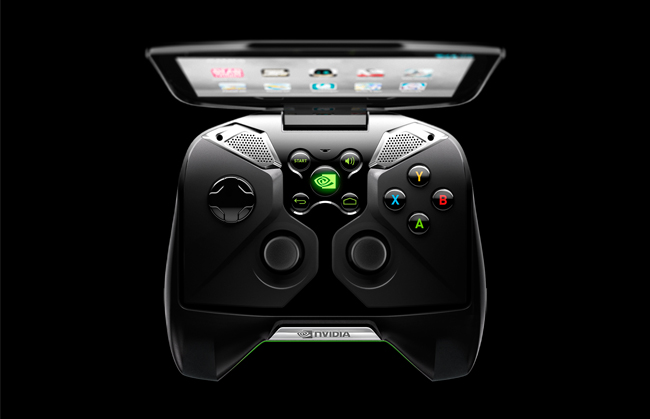NVidia's handheld not-a-console gaming interface, formerly Project Shield, has received its finalized release date, a new price, and feel-good marketing approach.

The company said in a public release that Shield can be expected on June 27th for a buck under $300, noting: "We've heard from thousands of gamers that if the price was $299, we'd have a home run. So we're changing the price of SHIELD to $299."
Fair. And probably true -- any more than that is pushing the cost of a GTX 770.
For the unfamiliar, Shield is nVidia's approach to a unified gaming experience (something everyone's trying right now), functioning as an Android-powered mobile device that serves as a game-streaming interface. Though it has its own integrated Tegra unit and display, the device is best used when wirelessly streaming from a desktop system to the handheld controller; Shield does this by routing the render/CPU cycles and computations through the desktop, which effectively buffers and prerenders everything, then ships it down the pipeline to Shield via Kepler's built-in streaming encoders. Shield receives the output and then displays it locally and/or on a designated (compatible) display - like a connected TV or monitor.
Now, if you're wondering why the heck you'd do all that when you could just plug a controller in and play locally, then you're not alone. NVidia's sample use-case scenarios include living room gaming (getting away from the PC for once, which we can all appreciate), high-powered mobile gaming (it has its own processors, so can process locally), or presumably other things. Android Authority recently talked about how nVidia marketed their device at E3, which might give you some other ideas.
We'll verify shortly, but I'm also personally curious as to how Shield will be able to handle -- if at all -- streaming one game while a desktop user plays another. Two games will beat up a system pretty hard due to poor optimization, so it's not very realistic as far as use-cases go, but the kind of user who buys Shield will have a powerful enough system to run at least two mid-range/indie-type games. I could see that being useful for sibling/friend/roommate situations.
If you're curious as to how Shield is made, you can go read about that in our previous post. Our initial CES coverage (which called Shield a "handheld console," though we've been asked not to do that) can be found over here.
- Steve "Lelldorianx" Burke.